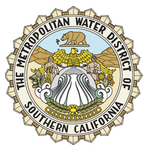Metropolitan Releases Inaugural Report Outlining Progress on Climate Action Plan
Agency makes progress on efforts to reach carbon neutrality by 2045 through suite of measures to address climate change
LOS ANGELES–(BUSINESS WIRE)–The Metropolitan Water District of Southern California today released its inaugural Climate Action Plan report, detailing its progress over the past year on a suite of measures designed to help the district achieve carbon neutrality by 2045.
Adopted by Metropolitan’s 38-member board in May 2022, the CAP outlines 42 greenhouse gas reduction measures to help Metropolitan reach its target, and also requires annual public reporting on progress on meeting those goals. The inaugural report highlights achievements on these measures from May-December 2022, including the total amount of non-functional turf removed, progress switching to cleaner electricity purchases and development of a plan to replace fossil-fuel vehicles.
“This progress was achieved through the hard work and dedication of groups across Metropolitan,” said Liz Crosson, chief sustainability, resilience and innovation officer. “I am proud of our team of sustainability champions helping us deliver on our commitment to find solutions that benefit people, nature and the climate.”
Highlights from the report include:
- Creation of a new Sustainability, Resilience and Innovation Office responsible for developing a districtwide sustainability and resiliency strategy to adapt to climate change impacts and driving initiatives to foster innovation.
- Launch of CAPDash, a web-based tool that allows the public to view Metropolitan’s progress toward GHG emission reduction targets.
- Implementation of a Zero-Emissions Vehicle Task Force that will develop a plan to replace fossil-fuel vehicles and build the necessary infrastructure to support the transition.
- Transition of about 41% of its retail electricity accounts (electricity purchased from a utility) from the standard electricity mix to a green tariff option, which includes higher rates of carbon-free and renewable electricity. The target for 2025 is to procure at least 88% of electricity from carbon-free sources.
- Significantly outperforming Metropolitan’s annual target to remove 1.5 million square feet of grass with more water efficient landscaping. Through its turf rebate program, Metropolitan incentivized the removal of an annual average of 4.4 million square feet of grass from 2017 to 2022, resulting in about 9,393 acre-feet of water savings. An acre foot is approximately 326,000 gallons, enough to serve three typical Southern California households a year.
- Completion of an audit of natural gas consuming equipment across all Metropolitan facilities, which will lead to a transition to cleaner, electric equipment over time.
“We have a long history of environmental stewardship at Metropolitan,” said board Chair Adán Ortega, Jr. “In the area of sustainability, we have quite literally helped change the landscape of Southern California with our massive turf replacement program. This plan is helping us look at everything through a climate lens to ensure we’re developing the best-possible future for the communities we serve.”
Metropolitan board Vice Chair for Climate Action Heather Repenning said these actions will be increasingly important as we face the escalating impacts of climate change.
“With climate change and rapid swings in weather challenging all of our water resources, our Climate Action Plan represents a comprehensive approach for how Metropolitan can be part of the solution,” Repenning said. “I know we have much to do, but I am impressed with the amount of progress we’ve been able to achieve so far and look forward to continuing this work.”
Contacts
Rebecca Kimitch, (213) 217-6450; (202) 821-5253, mobile; rkimitch@mwdh2o.com
Maritza Fairfield, (213) 217-6853; (909) 816-7722, mobile; mfairfield@mwdh2o.com



